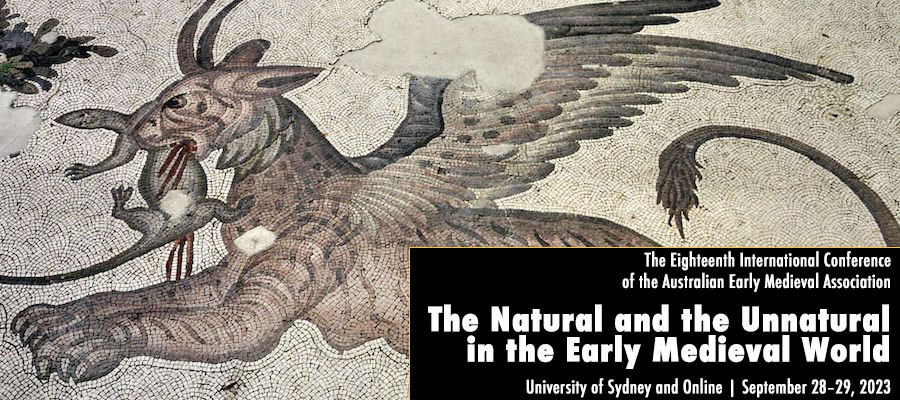The Natural and the Unnatural in the Early Medieval World, The Eighteenth International Conference of the Australian Early Medieval Association, University of Sydney and Online, September 28–29, 2023
In the largely rural and agrarian landscape of the medieval world, fauna and flora were highly regarded, as is evidenced by the importance of agriculture, the popularity of bestiaries, and the legacy of the elder Pliny’s Naturalis historia. The dynamics of the natural environment and social life has become an increasingly important topic in scholarship in recent years as we grapple with the impact of climate change.
For most people in the early Middle Ages, a supernatural world existed alongside the natural one and interacted with it. Indeed, the presence of the unnatural, whether in terms of bizarre creatures or disease and other environmental disasters, was taken as proof of the impact of the supernatural on the natural world and fed into philosophical and religious discourse.
Was nature cruel and heartless? Was it a manifestation of the divine? Was it there to be harnessed and exploited or was it wild and uncontrollable?
Potential themes include:
- Cosmology and astrology
- Climate and natural disasters
- Disease and medicines
- Technologies and superstitions
- Paganism and Christianity
- Biological cycles and human culture
- The natural and the supernatural
- Wilderness and domestication
- Life and the afterlife
- Daylight and darkness
- Monsters and totems
- Art and the imagination
Papers that focus on the dimensions of any or all of these worlds and their interplay in the early medieval period (c. 400 – 1100 CE), which either confirm or challenge this notion are invited to be presented at our annual conference to be held in September 2023 in hybrid mode.
Submissions may be in the form of individual papers of 20 minutes duration, themed panels of three 20‐minute papers, or Round Tables of up to six shorter papers (total of one hour).
